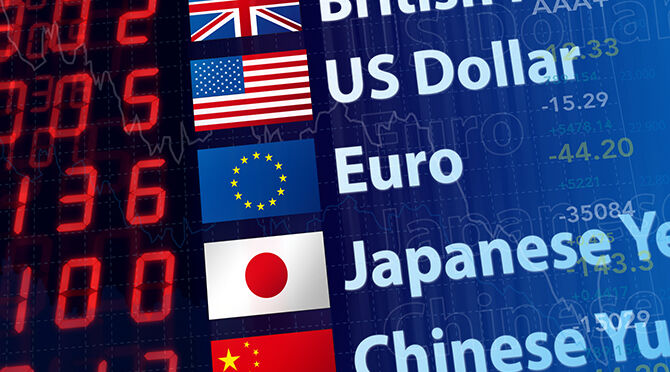Trump on trade – Pacific deal out, UK deal in, Mexico in limbo
Donald Trump's decidedly protectionist trade strategy started to emerge less than 24 hours after the new President's inauguration in Washington on Friday.

Tough and Fair agreements on trade
The statement said “tough and fair agreements” on trade could be used to grow the US economy and return millions of jobs to America. It added that if NAFTA partners did not give American workers a fair deal in a renegotiated agreement, “the President will give notice of the United States’ intent to withdraw from NAFTA”.But it was the decision to pull out of the TPP that caused most alarm among the other 11 Pacific Rim nations involved in a pact that Mr Obama saw as a way of countering growing Chinese influence.Japanese Prime Minister Shinzo Abe indicated on Monday that he would try to change Mr Trump's mind over the issue. “I believe President Trump understands the importance of free and fair trade, so I'd like to pursue his understanding on the strategic and economic importance of the TPP trade pact,” he told a session of parliament’s lower house.New Zealand Prime Minister Bill English said in a TV interview that a US withdrawal “could be negative for us – actually we would say negative for the US as well”, adding that the remaining nations would need to work together to find a new solution for future cooperation.It was a view supported by the Australians. Trade Minister Steve Ciobo told ABC on Monday that TPP would have to be revised “but the gains we have achieved absolutely warrant hanging on”.He added, “Access to the US market was no doubt an incentive for a lot of countries. But there is also a tremendous amount of benefit that has been achieved under the agreement that countries don't want to let go.”Related news:
- Trump and debt cast shadows over Chinese economy
- Brexit News-May rules out single market and free movement
Trading with China
One thing the White House has not said anything about yet is future trade arrangements with China, whom Mr Trump threatened with a 45 per cent tariff on imports during the election campaign. China is not a TPP signatory and economists fear that a trade war between the world's two biggest economies could have disastrous effects globally.While government-controlled Chinese media congratulated Mr Trump on his inauguration over the weekend and spoke of hopes of a “win-win” era of cooperation between the two countries, a report from Citigroup Inc on Monday warned of a fraught relationship, with the possibility the White House could introduce more protectionist measures against Chinese manufactured goods.“There are growing signs that the Trump administration is heading for antagonistic relations with China,” the bank said in a report that examined how commodities including metals and farm goods may fare in 2017. Although the report said it believed a trade war could be avoided, it did anticipate “increasing trade frictions” between the two nations.A new trading relationship with the UK
By contrast, Mr Trump seems keen on a new trade relationship with the UK and Mrs May confirmed over the weekend that “we’ll have an opportunity to talk about our possible future trading relationship” when she meets the new president in Washington.A White House aide, speaking on condition of anonymity, said that UK Foreign Secretary Boris Johnson and two of Mr Trump’s senior advisers – Steve Bannon and son-in-law Jared Kushner – had laid the groundwork for a future trade pact, including the reduction of barriers between US and British banks, when the three met in New York earlier in January.Meanwhile, the future of US relations with the remaining members of the European Union is still questionable. The free trade deal between America and the EU – the Transatlantic Trade and Investment Partnership – was effectively dead in the water before Mr Trump came into office.Merkel counsels to work together
The new president has spoken of imposing a 35 per cent tax on German car imports from Mexico and initial German government reaction to his inauguration was hostile.But Chancellor Angela Merkel – well aware that $111 billion of German exports to the US last year compared to only $49 billion in American imports into Germany – struck a conciliatory posture at the weekend, expressing a willingness to compromise on trade and NATO military spending.“I say two things with regards to this (Mr Trump's inauguration speech). First, I believe firmly that it is best for all of us if we work together based on rules, common values and joint action in the international economic system, in the international trade system, and make our contributions to the military alliances.”In addition to questions over future US trade relations with the EU and China, economists are waiting to see what Mr Trump intends to do about Russian sanctions, Iran, Cuba and the Middle East, where his overtly pro-Israel stance could damage America's standing with some of the world's major oil producers.For related news and features, visit our Enterprise section.
Access hundreds of global services and suppliers in our Online Directory Get access to our free Global Mobility Toolkit
Get access to our free Global Mobility Toolkit 
©2025 Re:locate magazine, published by Profile Locations, Spray Hill, Hastings Road, Lamberhurst, Kent TN3 8JB. All rights reserved. This publication (or any part thereof) may not be reproduced in any form without the prior written permission of Profile Locations. Profile Locations accepts no liability for the accuracy of the contents or any opinions expressed herein.






































